Sea shipping companies are at the heart of global trade, enabling businesses to move goods across continents efficiently and affordably. As an exporter, you understand how crucial it is to have reliable shipping partners who can ensure your products reach international markets on time. The importance of these companies was highlighted in 2025 when container shipping lines collectively reported net profits of $26.8 billion in the third quarter—an incredible 164% increase over the previous quarter.
This surge in profitability underscores the growing significance of sea shipping companies in supporting global commerce. Choosing the right one can have a direct impact on your success as an exporter.
1. MSC – Mediterranean Shipping Company
Founded in 1970 in Naples, Italy, MSC (Mediterranean Shipping Company) has grown to become one of the world’s most dominant players in the global shipping industry. With its headquarters now in Geneva, Switzerland, MSC’s growth over the decades has been nothing short of impressive.
Key Financials:
- Cash Holdings (2022): €63 billion
- Estimated Capitalization (2022): €91 billion
- Debts (2022): €26 billion
MSC’s financial strength is evident in its massive cash reserves and substantial capitalization, which allows it to maintain an expansive fleet and pursue new ventures in the shipping industry.
Fleet and Capacity (2025):
- Fleet Size: Approximately 900 cargo vessels (as of March 2025)
- Total TEU Capacity: 5,505,417 TEU (as of March 2025)
In August 2024, MSC’s fleet included 846 vessels, boasting a capacity of over 6 million TEU, making it the largest container shipping company by fleet size and cargo capacity globally. It controls an astounding 20% of the world’s container capacity in July 2024.
Owned vs. Chartered Ships (2024):
- Owned Ships: ~3.2 million TEU
- Chartered Ships: ~2.98 million TEU
MSC’s strategic balance between owned and chartered vessels gives it flexibility while maintaining control over a significant portion of global shipping capacity.
Notable Vessels:
- MSC Tessa (March 2023): 24,116 TEU
- MSC Irina (March 2023): 24,232 TEU
These massive ships are some of the largest in the world, enabling MSC to carry enormous volumes of cargo with each voyage.
Annual Throughput (2021):
- At Sea (TEU): 22.5 million TEU
- On Land (Road and Rail): 8.5 million TEU
MSC’s throughput reflects its vast network of operations, ensuring that goods are efficiently transported across both sea and land.
2. Maersk Line
Founded in 1928, Maersk Line, based in Copenhagen, Denmark, is one of the world’s second largest and most well-established container shipping companies. With nearly a century of experience in global trade, Maersk continues to lead the shipping industry with its extensive fleet, innovative logistics solutions, and strategic focus on sustainability.
Key Facts:
- Headquarters: Copenhagen, Denmark
- Number of Vessels (2024): Over 700 container ships
- Global Ports Served: 374
- Countries Served: 116
- Annual Revenue (2023): $81 billion
- Operating Profit (2023): $19.8 billion
Maersk’s far-reaching operations span multiple continents, enabling it to serve nearly all regions of the globe, making it a top choice for businesses involved in international trade. With its massive scale, Maersk facilitates the flow of goods across borders through an extensive network of ocean, rail, and land-based transport solutions.
Fleet and Capacity:
- Total Capacity: Approximately 4.1 million TEU
- Fleet Breakdown: Maersk operates a mix of ultra-large container ships (ULCS), intermediate-sized vessels, and smaller feeder ships to ensure flexibility and capacity across various routes and trade lanes.
Maersk’s fleet is designed to handle the growing demands of global trade, with the ability to carry a significant volume of cargo across long-distance routes, including trans-Pacific, trans-Atlantic, and intra-Asia services.
Notable Vessels:
- Emma Maersk (Delivered 2006): 15,500 TEU
- Triple-E Class (Delivered 2013–2015): Up to 18,000 TEU, featuring the largest capacity vessels in the Maersk fleet.
Strategic Initiatives:
- Sustainability Focus: Maersk is actively working towards reducing its carbon footprint, with plans to reach net-zero emissions by 2040. They’ve committed to introducing methanol-powered vessels, adopting energy-efficient designs, and investing in green technologies like wind-assisted propulsion.
- Technology Integration: Maersk has embraced digitalization with the launch of various technological innovations to enhance shipping efficiency, such as predictive analytics, cargo tracking tools, and AI-driven logistics platforms.
Maersk’s Position in the Market:
- Ranked: Second largest container shipping company by fleet size and cargo capacity (after MSC)
- Annual Throughput (2021): Over 12.5 million TEU
Market Share (2024): Approximately 17% of global container shipping capacity
Maersk’s substantial market share and strategic positioning in global logistics make it an essential partner for exporters looking for both capacity and reliability. Their investment in digital tools and sustainable shipping solutions ensures that they remain at the forefront of the industry.
3. CMA CGM
Founded in 1978 and headquartered in Marseille, France, CMA CGM has grown to become the third-largest container shipping company in the world. With a legacy spanning over four decades, CMA CGM is recognized for its global presence and innovative logistics solutions that support businesses across various industries.
Key Facts:
- Headquarters: Marseille, France
- Global Presence:
- Operates in 160+ countries
- 400 offices worldwide
- 1,000 warehouses
- Ports Served:
- Serves 420 out of 521 commercial ports globally
- Operates more than 250 shipping lines
CMA CGM’s extensive global network allows it to connect businesses across continents, with a strategic focus on both maritime and inland logistics, ensuring that goods are efficiently transported through every stage of the supply chain.
Fleet and Shipping Operations:
- Fleet Size: Over 650 vessels
- Total Fleet Slot Capacity: 5 million TEUs
- Annual Container Volume Transported: 23.6 million TEUs
- Shipping Lines: 257 shipping lines
With its large fleet and extensive capacity, CMA CGM ranks among the top players in the shipping industry, offering comprehensive and reliable services to exporters around the world.
Financial Performance:
- 2024 Revenue: $55.48 billion
- 2024 Operating Income: $13.45 billion
- 2024 Net Income: $5.71 billion
- 2023 Revenue: $47.02 billion
CMA CGM’s impressive financial results reflect its strong position in the market, driven by both steady growth in revenue and a robust operating income. The company’s focus on efficiency and innovation continues to fuel its profitability, making it a trusted choice for exporters looking for stability and scalability in their shipping solutions.
4. COSCO
Headquartered in Shanghai, COSCO is one of the world’s largest shipping conglomerates and ranks as the fourth-largest container ship operator globally. With decades of experience in maritime logistics, COSCO continues to be a major force in the shipping industry, providing extensive service coverage and reliable solutions for exporters around the world.
Key Facts:
- Headquarters: Shanghai, China
- Total Vessels:1,349
- Container Ships: 504
- Dry Bulk Carriers: 436
- Oil/Gas Tankers: 229
- Specialized Cargo Fleet: 180
COSCO’s diverse fleet ensures its ability to handle a wide range of cargo types, from containers to bulk materials and oil/gas shipments, making it an adaptable partner for various industries.
Annual Shipping Volume and Financial Performance:
- Annual Shipping Volume (2023): 18,343,797 TEUs
- Operating Revenue (2023): $93.2 billion
- Total Profit (2023): $6.2 billion
With an impressive shipping volume and solid financial performance, COSCO continues to rank among the leading shipping companies, offering reliable and cost-efficient solutions for businesses with international shipping needs.
Service Coverage:
- Americas
- Asia Pacific
- Latin America
- Africa
- Europe
- Mediterranean
- Southeast Asia
- Japan
- South Korea
COSCO’s expansive service coverage ensures that it connects major trade routes across continents, making it a valuable partner for global exporters looking to reach markets across the world.
5. Hapag-Lloyd
Hapag-Lloyd AG, headquartered in Hamburg, Germany, is a key player in global shipping and container transportation, ranked as the world’s fifth-largest container shipping line. With its strong presence on major global trade routes, Hapag-Lloyd continues to be a reliable choice for businesses looking to transport goods efficiently across international markets.
Key Facts:
- Headquarters: Hamburg, Germany
- Fleet Size (Q1 2025): 299 modern container ships
- Owned Ships: 129
- Leased Ships: 171
- Total Transport Capacity: 2.3–2.34 million TEU
Hapag-Lloyd’s modern fleet, consisting of a combination of owned and leased vessels, is designed to meet the growing demand for container transport across global trade lanes.
Financial Performance (Q1 2025):
- Revenue: EUR 5.1 billion (USD 5.3 billion), up from EUR 4.3 billion in Q1 2024
- EBITDA: EUR 1.0 billion (USD 1.1 billion), a 17% increase year-over-year
- EBIT: EUR 0.5 billion (USD 500 million), a 24% increase from Q1 2024
- Transport Volume: 3.3 million TEU, up 9% from Q1 2024
- Average Freight Rate: USD 1,480 per TEU, a 9% increase year-over-year
Hapag-Lloyd’s consistent financial growth reflects its strong position in the shipping industry, driven by an increase in transport volumes and higher freight rates.
6. Ocean Network Express (ONE)
Ocean Network Express (ONE) is a major global container shipping company formed by the integration of three leading Japanese carriers: NYK Line, MOL, and K Line. Headquartered in Singapore, ONE is the world’s sixth-largest container carrier, offering a vast international network that connects businesses across the globe.
Key Facts:
- Headquarters: Singapore
- Fleet Size (2024): 252 vessels
- Intra-European Market Share: 2.6% (30,000+ TEUs)
- Service Coverage: Over 180 services to 120 countries globally
ONE’s extensive fleet and growing service network ensure reliable connections across key global trade routes, making it a trusted shipping partner for exporters.
Fleet and Capacity (2024):
- Total Fleet Capacity: Approximately 1.96 million TEUs
- Owned Fleet Capacity: About 784,000 TEUs
- Fleet Growth: ONE operates more than 230 vessels, expanding its services and capacity to meet the growing demands of global trade.
- Intra-European Expansion: ONE doubled its intra-European fleet from 8 to 17 ships in one year, increasing the average vessel size from 1,450 TEU to 1,809 TEU
ONE’s strategic expansion into key regions like Europe and its ongoing fleet growth make it a flexible and efficient choice for exporters needing reliable service across various continents.
- Revenue (FY2023): US$14.54 billion, a 50% decrease year-on-year
- Net Profit (FY2023): US$974 million, a 94% decline from the previous year
- EBITDA (FY2023): US$2.04 billion
- FY2024 Profit Forecast: Around US$1 billion, with expectations of continued economic and geopolitical uncertainty
Despite facing a decrease in revenue and profit in FY2023, ONE continues to show resilience in a challenging global environment, with strong EBITDA and positive forecasts for FY2024.
7. Evergreen Line
Headquartered in Taiwan and operated by Evergreen Marine Corporation, Evergreen is the seventh-largest container shipping line globally and is part of the Evergreen Group conglomerate, a key player in international shipping and logistics. Its impressive market share, large fleet capacity, and extensive network make it a top choice for businesses seeking consistent and efficient shipping solutions.
Key Facts:
- Headquarters: Taiwan
- Market Share: 5.6% of global container shipping capacity
- Ports Served: 240 ports across 80 countries worldwide
Evergreen Line’s extensive service network connects businesses to key global markets, offering reliable shipping solutions to exporters worldwide.
Fleet and Capacity (May 2023):
- Fleet Size: 211 ships
- Owned Ships: 126
- Chartered Ships: 85
- Total Operational Capacity: 1.74 million TEUs
Evergreen’s fleet provides a robust capacity for handling diverse shipping needs, ensuring that goods are efficiently transported across five continents. With more than 200 full-containerships operating on over 150 routes weekly, Evergreen delivers fast and reliable services for international trade.
Evergreen Marine (Asia) Pte. Ltd. (Subsidiary):
- Fleet Size: 43 ships under the Singapore flag
- Chartered Ships: 114 container vessels
- Combined Capacity: 1,497,332 TEUs
This subsidiary strengthens Evergreen’s global footprint, particularly in the Asia-Pacific region, with additional services across key trade routes.
8. HMM Co. Ltd.
HMM Co. Ltd., South Korea’s largest container shipping company, is a key global logistics provider headquartered in Seoul. With a comprehensive network that spans four international headquarters, 27 subsidiaries, 76 branches, five overseas offices, and 10 liaison offices, HMM has cemented its position as a prominent player in global shipping.
Key Facts:
- Headquarters: Seoul, South Korea
- Global Network:
- Four international headquarters
- 27 subsidiaries
- 76 branches
- Five overseas offices
- 10 liaison offices
HMM’s expansive reach ensures it provides efficient shipping solutions and services worldwide, helping exporters navigate global trade routes effectively.
Financial Performance (2023):
- Revenue: KRW 8,401 billion
- Operating Profit: KRW 585 billion (7% margin)
- Net Profit: KRW 1,006 billion (12% margin)
Despite the challenging global economy, HMM has demonstrated solid financial performance, with a healthy profit margin and a robust revenue stream, underscoring its resilience in the competitive shipping industry.
Fleet and Capacity (November 2024):
- Owned Fleet Capacity: ~743,000 TEUs
- Chartered Fleet Capacity: ~152,000 TEUs
- Orderbook: ~96,400 TEUs
HMM’s fleet is poised for significant growth, with the company set to reach a total fleet capacity of 1 million TEUs after the delivery of twelve new 13,000 TEU containerships in 2025. This expansion will ensure that large ships (over 10,000 TEU) will make up 80% of HMM’s fleet, improving overall efficiency and capacity utilization.
9. Zim Integrated Shipping Services
ZIM Integrated Shipping Services Ltd. (NYSE: ZIM), headquartered in Israel, is a prominent global container shipping company operating in over 90 countries and serving approximately 300 ports worldwide. With a strategic focus on niche markets, fleet agility, and sustainability, ZIM continues to enhance its position in the competitive global shipping industry.
Key Facts:
- Headquarters: Israel
- Global Presence: Operates in 90+ countries and serves 300 ports worldwide
- Employees: ~4,200
ZIM’s international reach and customer-centric approach ensure it can meet the diverse needs of exporters across global trade routes.
Financial Performance (Q4 2024):
- Revenues (Q4 2024): $2.17 billion (up from $1.21 billion in Q4 2023)
- Carried Volume (Q4 2024): 982,000 TEUs (up from 786,000 TEUs in Q4 2023)
- Average Freight Rate (Q4 2024): $1,886/TEU (up from $1,102/TEU in Q4 2023)
Net Income (Q4 2024): $563 million (compared to a net loss of $147 million in Q4 2023) - Adjusted EBITDA Margin (Q4 2024): 45% (up from 16% in Q4 2023)
ZIM’s remarkable revenue and profit growth in Q4 2024, coupled with an impressive EBITDA margin, showcase the company’s ability to capitalize on favorable market conditions while maintaining cost efficiency.
2025 Outlook:
- Adjusted EBITDA Guidance: $1.6 billion to $2.2 billion
- Adjusted EBIT Guidance: $350 million to $950 million
- The outlook assumes Red Sea trade disruptions will continue into at least the second half of 2025.
ZIM’s cautious but optimistic outlook for 2025 reflects its strategic planning amid external challenges, ensuring a balanced approach to both risk and opportunity.
- Total Ships (Dec 2023): 131
- Owned Ships: 8
- Chartered Ships: 119
- Total Fleet Capacity: ~776,400 TEUs
ZIM’s fleet consists of a combination of owned and chartered vessels, allowing it to scale operations and adapt quickly to shifting market demands.
Fleet Renewal Program (2021–2025):
- 46 newbuild vessels, including 28 LNG-powered ships
- LNG Capacity:
- 10 x 15,000 TEU vessels
- 18 x 8,000 TEU vessels
ZIM’s commitment to sustainability is evident in its fleet renewal program, with a significant portion of its fleet transitioning to LNG-powered vessels by 2025..
10. Yang Ming Marine Transport Corporation
Yang Ming Marine Transport Corporation is a major Taiwanese shipping line, ranked as the world’s tenth-largest container carrier. Specializing in container shipping, Yang Ming operates a vast global network, serving key markets across the globe with reliable, efficient, and scalable shipping solutions.
Key Facts:
- Headquarters: Taiwan
- Rank: Tenth-largest container carrier globally
- Fleet Size (April 2025): 99 vessels, including container ships as the primary service force
Yang Ming’s large fleet and global network ensure that exporters have access to efficient shipping services for markets worldwide, providing both flexibility and capacity.
- Consolidated Revenues: New Taiwan Dollar (NTD)222.71 billion (approx. USD 6.94 billion)
- Net Profit After Tax: NTD 64.18 billion (approx. USD 2 billion), a substantial increase from NTD 4.77 billion (USD 153 million) in 2023
- Revenue Growth: 58.37% increase in net sales from 2023 to 2024
- Profit Surge: Net income rose by over 1,244% year-on-year in 2024
Yang Ming’s remarkable financial performance in 2024 reflects its robust operational strategy, with significant revenue growth and an outstanding increase in profit.
Operational and Fleet Data (2024):
- Total Operating Capacity: 723,000 TEUs
- Owned Ships Capacity: ~324,000 TEUs
- Chartered Ships Capacity: ~380,000 TEUs
- Deadweight Tonnage: 8.201 million DWT
Yang Ming’s fleet, which combines both owned and chartered vessels, ensures substantial operational capacity, allowing the company to meet global shipping demand with flexibility and efficiency.
Strategic Developments:
- Fleet Modernization: Plans to build up to 13 new container ships, each ranging from 8,000 to 15,000 TEUs, to replace older vessels (5,500–6,500 TEUs, over 20 years old)
- Shipping Capacity Growth: Yang Ming’s global container shipping capacity increased by 3 million TEUs in 2024, with the company’s performance outpacing overall demand growth.
As we’ve covered the leading shipping companies, it’s also worth partnering with a right freight forwarder in simplifying the shipping process. While shipping lines handle the transportation of goods across seas, freight forwarders like Intoglo bridge the gap by offering end-to-end services, from pickup to final delivery. Let’s dive into how Intoglo is revolutionizing the freight forwarding experience.
Intoglo: A Door-to-Door Solution for Seamless Shipping
Intoglo is a tech-driven digital freight forwarder specializing in end-to-end FCL shipping from India to the USA. It offers efficient, streamlined shipping with key features:
- Pickup within 24 hours from any location in India
- Comprehensive services: consolidation, CFS stuffing, ocean freight, customs clearance, warehousing, and last-mile delivery
- Seamless delivery to 41,000+ zip codes in the USA through 40+ trucking partners
- Partners with top shipping lines: Hapag-Lloyd, CSA CGM, Maersk, Evergreen, and MSC
- Committed to sustainability to reduce the environmental impact of shipping
For exporters seeking reliable and efficient shipping, Intoglo offers a modern, seamless solution to navigate the complexities of global logistics.
Get in touch with the logistics experts
FAQs
1. What factors should I consider when choosing a container shipping company?
Answer: When selecting a shipping company, consider factors such as reliability, shipping routes, pricing, customer service, and the ability to provide real-time tracking and end-to-end visibility. It’s essential to evaluate how well the company can meet your specific shipping needs, especially in light of global trade changes.
2. How do tariffs affect container shipping in 2025?
Answer: With the ongoing shifts in global trade policies and tariff regulations, container shipping companies need to adapt quickly. Tariffs can increase shipping costs, delay transit times, and impact supply chains. Businesses must work with shipping providers that understand these changes and can help navigate them effectively.
3. What makes Intoglo a reliable choice for India-to-USA shipments?
Answer: Intoglo stands out for its direct door-to-door shipping services, offering seamless logistics between India and the USA. Their expertise in customs clearance, transparent pricing, and real-time shipment tracking make them a trusted partner for exporters looking for efficient and cost-effective solutions.
4. How does Intoglo ensure smooth customs clearance?
Answer: Intoglo’s in-house compliance team conducts thorough pre-screening before shipments depart, ensuring hassle-free customs clearance in both India and the USA. This minimizes delays and ensures your goods are cleared quickly at both ends.
5. Which container shipping companies does Intoglo partner with?
Answer: Intoglo partners with some of the most reliable and well-established container shipping companies globally to ensure efficient and timely deliveries. Our key partners include major shipping lines like Maersk, Hapag-Lloyd, MSC (Mediterranean Shipping Company), CMA CGM, ZIM Integrated Shipping Services, and Evergreen Marine Corporation. By working directly with these companies, we bypass intermediaries, which helps streamline the shipping process and minimize delays. This direct approach allows us to offer competitive pricing, better control over shipments, and faster transit times, providing exporters with a seamless and cost-effective solution for their India-to-USA shipments.


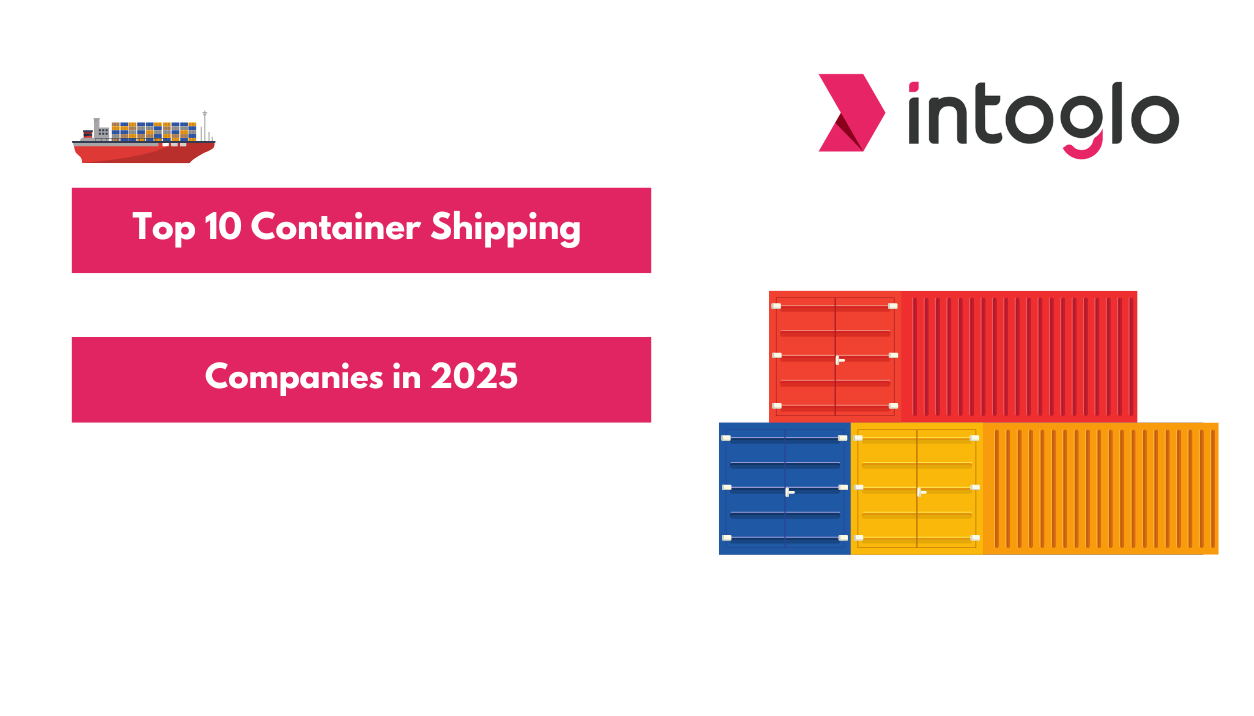
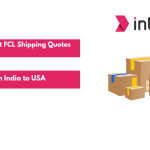
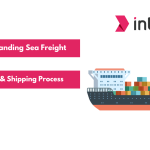
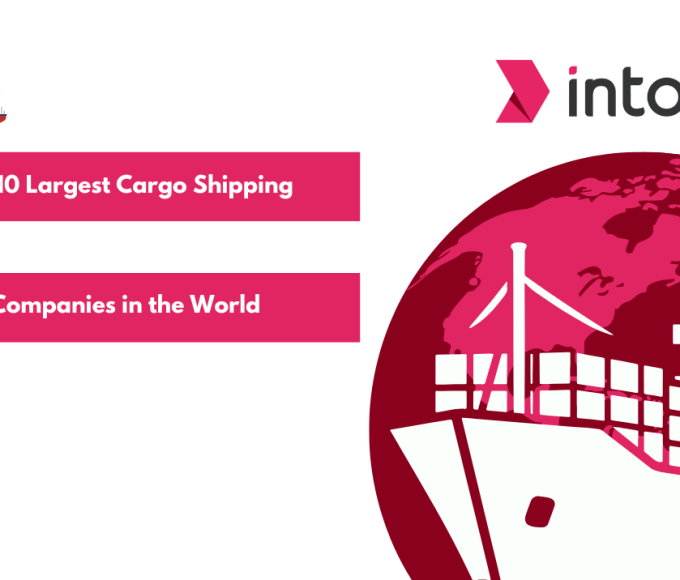
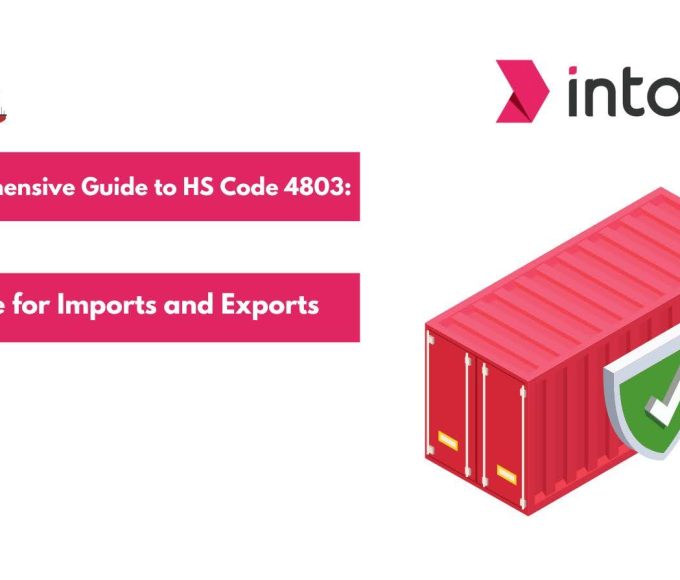
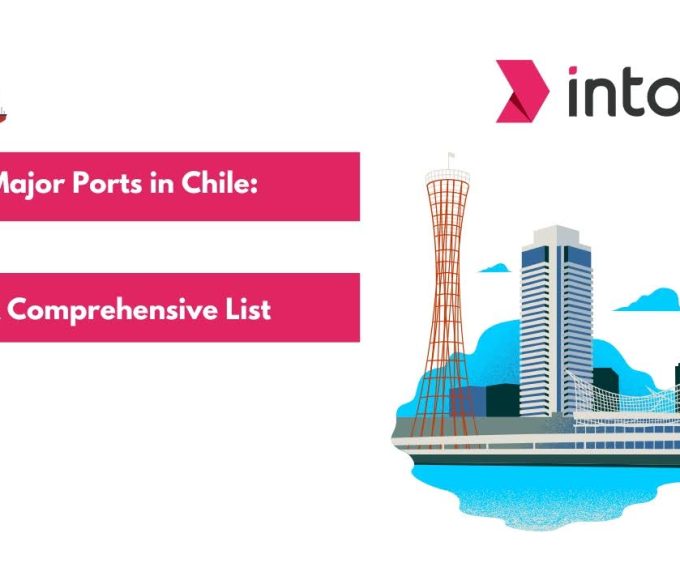
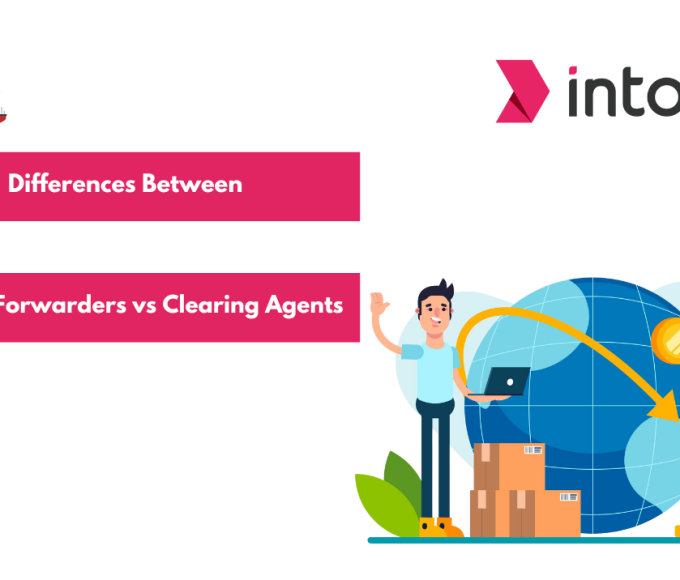
Leave a comment